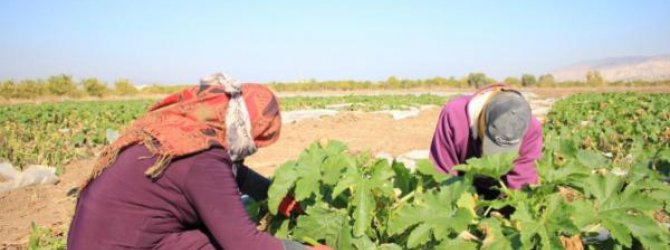-
Agricultural Informality: The women working outside the ...
Agricultural Informality: The women working outside the safety net of social protection

‘We said to the boss: “She needs treatment.” He replied, “How am I supposed to get the car over here?” She didn’t get the treatment she needed, so she died.’ Stories, like these, form just one part of the harsh reality of living as a female agricultural worker in the district of Tabqat Fahel in Jordan’s northern valleys.
A policy paper published in 2021 by the social justice team at the West Asia-North Africa Institute, based on interviews through both official channels and focus group sessions with women working in the sector, revealed the details of, and reasons behind, this everyday reality.
The most prevalent issues and challenges in the sector hinge upon the fact that it continues to function on an informal basis. As a result, female workers regularly use (or are subject to) unsafe means of transportation in the form of coaches and pickup trucks provided by their employer. The vehicles’ seating capacity is often exceeded, with the number of passengers ranging from 5 to 30 - this, of course, leads to an increased likelihood of sustaining an injury while being transported to the worksite.
Despite this danger, the wages of these women remain low, with a current - theoretical - hourly rate of just 1.25 dīnār ($1.76 USD). Real earnings are often less, depending on how wages are calculated and the quality of the yield. There are no bonuses for working on official or religious holidays.
Work contracts in the agricultural sector continue to be formed on a largely unwritten basis - leading to a system of informal, verbal agreements, either directly or through an intermediary. As such, workers are not entitled to any benefits. In the event of sustaining an injury on site, the costs of medical treatment are therefore not covered by their employer but rather are paid from their own pockets. Nor are they entitled to any of the incentives or paid leave outlined in either the Agricultural Workers’ Regulations of 2021 or in regular employment law, such as yearly leave, paid sick-leave, or maternity leave. These women are therefore working while being deprived of many workers’ rights, compensation schemes, or social protections.
These women are also continually exposed to harassment and even violence, both physical and verbal. Such abuses take place both while being transported to the worksite and by the site manager once they arrive, usually on the pretext of failing to meet quotas or accusations of laziness, when really they are being exploited in order to squeeze out the highest possible yields at the expense of their mental and physical health.
The Solution: Formalise the System
The predicaments outlined above clearly necessitate that general policies are put in place to revise and develop new legislation with regard to employment in the agricultural sector, in order to afford proper social and legal protections to its workers - including women. This should also include the development of Section 19 of the Agricultural Workers’ Regulations of 2021 which would provide female workers some relief from the challenges they currently face in the sector. It is also necessary to widen the legislative scope of social protection so as to afford to all workers, male and female, the right to health insurance and social security. There needs to be increased cooperation between the Ministry of Labour and the Ministry of Agriculture in order to develop robust mechanisms of legislative and professional oversight. For example, the Ministry of Labour could draft a completely standardised employment contract for workers in the agricultural sector, requiring the legal compliance of the employer. The two ministries could also work together to introduce teams specialising in the monitoring and oversight of the sector as a whole, bringing to light any breaches of the aforementioned contract.
Agriculture is considered among the more important sectors in Jordan, despite its waning contribution - 4.5%, according to a 2021 report from the Department of Statistics - to the nation’s Gross Domestic Product (GDP). Further, the agricultural sector has been characterised by a marked decrease in its share of Jordan’s labour force, accounting for just 1.7% of its total, according to the Jordan Strategy Forum in 2017. Despite this, the agricultural sector is one in which informal labour is most prevalent, with all of the lacking social protections that come with it.
Translated from Arabic by James Felix Winder

